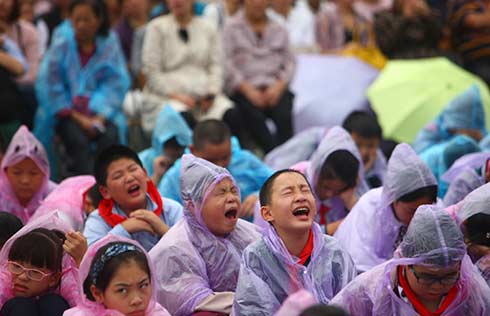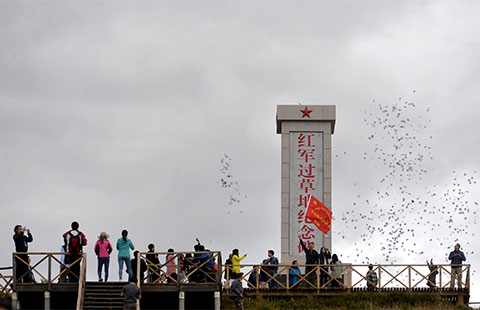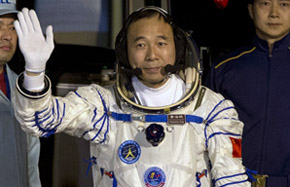Space program advances in heavens and on Earth
"We will continue to push forward with the internationalization and commercialization of the academy's space sector through more participation in the international space market and introduction of private capital," Hao said. "The government also encourages industry players to develop commercial satellites and their applications, commercial launch services and space tourism."
Hao spoke Wednesday at a ceremony marking the establishment of ChinaRocket Co Ltd, a company founded by the academy to provide launch services to domestic and overseas clients.
"The new company will start business by designing and using some light-lift rockets to fulfill commercial contracts and then open the development of suborbital, reusable spacecraft for space tourism," Hao said, adding the firm will also go public.
Han Qingping, president of ChinaRocket, announced that his company aims at carrying out at least 50 launches per year and maintaining a cost 30 percent lower than its competitors in the market. He did not elaborate on the agenda to achieve these goals.
In the past, the idea of commercializing the space industry was deemed by some experts in China as being unrealistic or even unreasonable. Opinions started to change over the past two years along with the rise of private space enterprises in the United States such as SpaceX and Orbital Sciences.
In February, China Aerospace Science and Industry Corp, a State-owned defense technology giant, set up the Expace Technology Co Ltd to put its Kuaizhou-series solid-fueled rockets on the market.
Expace Technology will have an annual production capacity of 50 carrier rockets and 140 commercial satellites by 2020, company executives said.
China has launched 54 carrier rockets to lift satellites for foreign clients.
Hu Shengyun, a senior rocket engineer at China Aerospace Science and Industry Corp, estimates that by 2020, the market value of commercial space activities in China will reach 30 billion yuan ($4.6 billion) annually.


















